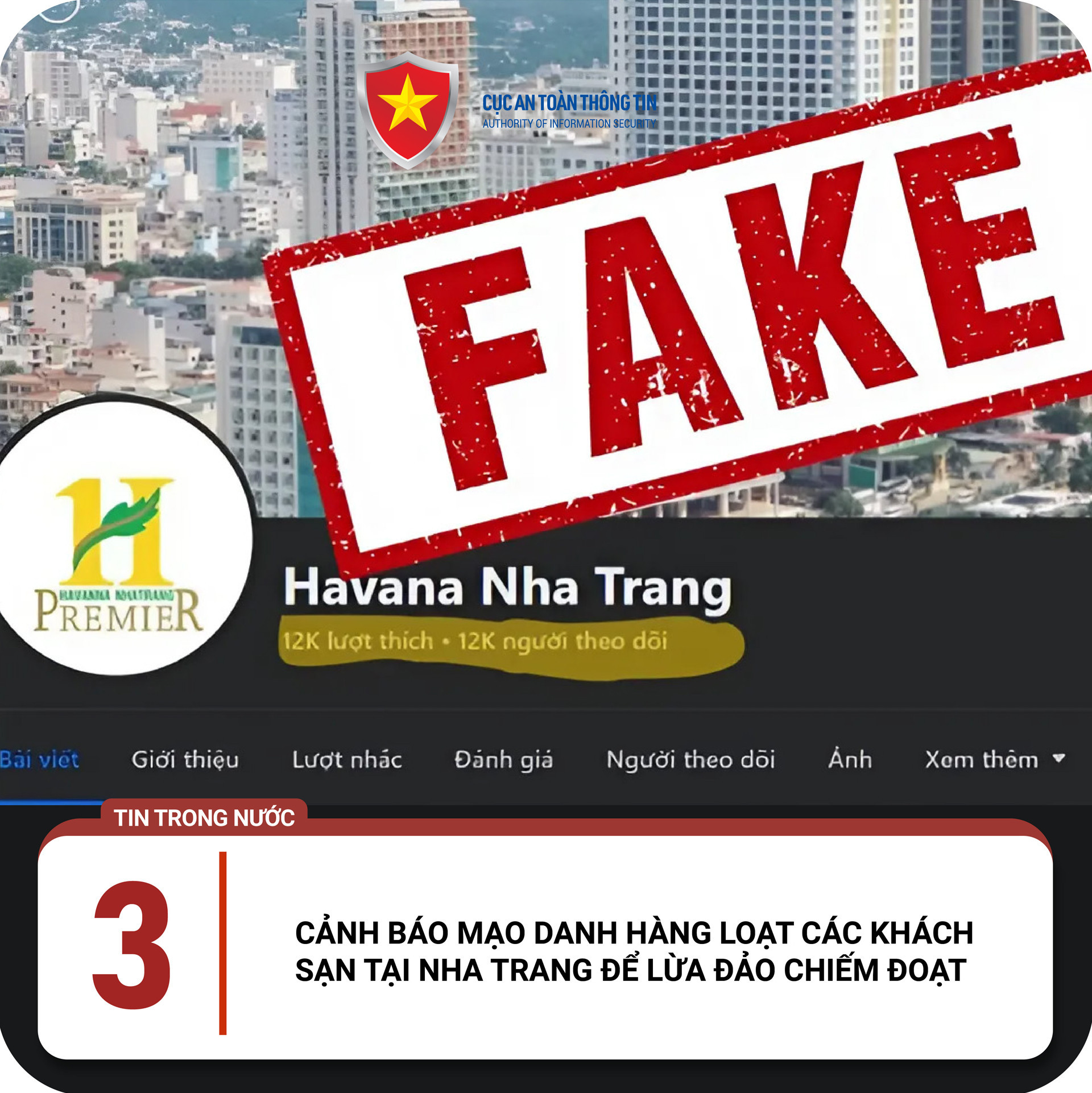
This announcement is part of the department's regular updates since November 2023, addressing various cyber threats both domestically and globally.
A recent collaboration between the Information Safety Department and Meta featured a campaign on preventing impersonation scams, including participation from popular TV host Khanh Vy.
Alongside investment scams, job fraud, financial deceit, loan scams, and lottery frauds, impersonation scams remain a focal point due to their frequency and impact on victims.
Highlighted scam incidents (September 23-29):
1. Health Department Impersonation in Ho Chi Minh City:
Scammers contacted restaurant owners in Ho Chi Minh City through Zalo, claiming to represent the local Health Department. They announced an upcoming food safety inspection, sending fake documents to establish credibility. Victims were asked to provide personal information and even banking details under the guise of aiding the investigation process.
2. Fake Gift Programs Exploiting Brand Names:
As the Vietnamese Women’s Day (October 20) approaches, scammers have launched fake ‘Gratitude Gift’ programs impersonating well-known brands. A woman from Tay Ho district, Hanoi, was defrauded of VND 50 million by believing in such a fraudulent Facebook advertisement.
3. Hotel Impersonations in Nha Trang:
Several hotels in Nha Trang have reported that fraudsters on Facebook have been impersonating them to steal deposit money from unsuspecting tourists. For instance, in August 2024, the Khanh Hoa Tourism Department alerted about a Facebook user named “Thao Cherry” who blocked communication after receiving deposits.
4. Emotional Scamming Using Fake Identities:
Emotional deception is also on the rise, where scammers create compelling backstories such as being a ‘single father’ to evoke empathy and trust. Victims are manipulated into transferring money for supposed emergencies like detention at airports due to undeclared currency possession.
The Information Safety Department strongly advises the public to verify the authenticity of any suspicious communications, refrain from providing sensitive personal information, and report any dubious interactions to the authorities. They also recommend using official websites for bookings and transactions and maintaining skepticism towards too-good-to-be-true offers.


